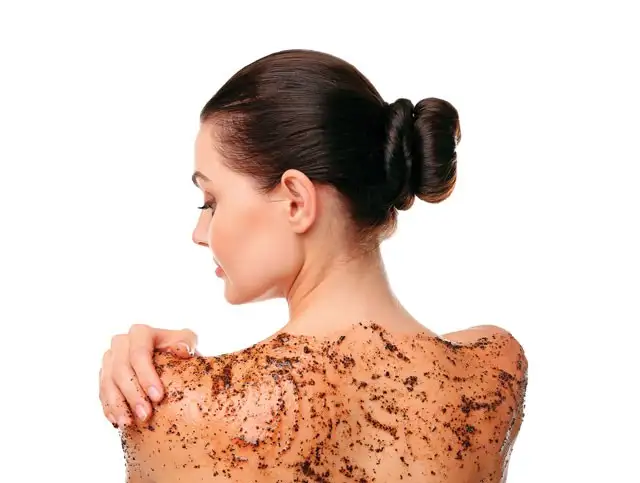Dormir o suficiente é um dos tratamentos naturais de beleza mais poderosos para a sua pele. Durante o sono, o corpo passa por processos essenciais de reparação e regeneração , ajudando a manter uma pele jovem e radiante . A falta de sono, por outro lado, pode levar à pele opaca, envelhecimento precoce e aumento de problemas de pele . Neste artigo, exploraremos a importância do sono para a saúde e a beleza da pele e compartilharemos dicas sobre como melhorar seu sono para uma aparência radiante e saudável.
1. Sleep Helps Skin Repair and Regenerate
Enquanto você dorme, seu corpo trabalha para reparar células danificadas, aumentar a produção de colágeno e eliminar toxinas . Esse processo de regeneração noturna é crucial para manter a pele firme, lisa e jovem . Dormir mal pode retardar essas funções, levando a rugas, flacidez e pele opaca .
✔ Boosts collagen production, reducing fine lines and wrinkles
✔ Repairs damaged skin cells and restores skin health
✔ Promotes a fresh and radiant complexion
💡 Tip: Aim for 7-9 hours of quality sleep every night to maximize skin repair.
2. Reduces Dark Circles and Puffy Eyes
Um dos sinais mais visíveis de sono ruim é o aparecimento de olheiras e inchaço nos olhos . A privação de sono causa a dilatação dos vasos sanguíneos , resultando em olheiras . Também aumenta a retenção de líquidos , deixando os olhos com aspecto inchado e cansado.
✔ Previne olheiras e inchaço
✔ Melhora a circulação sanguínea para uma área dos olhos mais brilhante
✔ Ajuda a pele ao redor dos olhos a parecer firme e revigorada
💡 Tip: Sleep with your head slightly elevated to prevent fluid buildup under the eyes.
3. Prevents Premature Aging
Durante o sono profundo, o corpo produz o hormônio do crescimento humano (HGH) , essencial para a regeneração celular e a elasticidade da pele . A privação de sono reduz esse hormônio, levando ao envelhecimento mais rápido da pele e ao desenvolvimento de linhas finas e rugas .
✔ Aumenta a elasticidade e firmeza da pele
✔ Retarda o aparecimento de rugas e flacidez
✔ Mantém a pele firme e jovem
💡 Tip: Sleep on a silk or satin pillowcase to reduce friction and prevent sleep lines.
4. Reduces Stress and Prevents Acne Breakouts
A falta de sono aumenta os níveis de cortisol (o hormônio do estresse) , o que desencadeia inflamação, acne e aumento da produção de oleosidade . Uma boa noite de sono ajuda a equilibrar os hormônios e mantém a pele calma, limpa e saudável .
✔ Reduz a inflamação e a vermelhidão da pele
✔ Previne a acne relacionada ao estresse
✔ Controla a produção de oleosidade para uma pele equilibrada
💡 Dica: Pratique rotinas noturnas relaxantes , como ler, meditar ou respirar profundamente para reduzir o estresse antes de dormir.
More Lear : Spa day at Home
5. Aumenta a eficácia dos produtos para a pele
À noite, a pele fica mais permeável , o que significa que absorve melhor os produtos de cuidados com a pele . Isso torna a noite o melhor momento para usar séruns, hidratantes e tratamentos antienvelhecimento para obter o máximo de benefícios.
✔ Aumenta a eficácia dos ingredientes para cuidados com a pele
✔ Permite uma penetração mais profunda de soros e cremes
✔ Melhora a hidratação e a nutrição
💡 Tip: Apply a night cream with hyaluronic acid, retinol, or peptides before bed for optimal skin renewal.
6. Helps Maintain a Healthy Skin Barrier
A barreira cutânea atua como um escudo protetor contra poluentes, bactérias e perda de umidade. Dormir mal enfraquece essa barreira, tornando a pele mais propensa a ressecamento, irritação e sensibilidade .
✔ Fortalece a barreira protetora da pele
✔ Previne a desidratação e a irritação
✔ Mantém a pele resiliente e saudável
💡 Tip: Drink enough water throughout the day to support skin hydration while you sleep.
7. Balances Skin Tone and Brightens Complexion
Um corpo bem descansado estimula a circulação sanguínea , dando à pele uma aparência saudável e radiante . A privação de sono, por outro lado, deixa a pele opaca, cansada e irregular .
✔ Evens out skin tone and reduces dullness
✔ Enhances natural skin radiance
✔ Gives skin a healthy, well-rested glow
💡 Tip: Get consistent, high-quality sleep every night for a brighter complexion.
How to Improve Your Sleep for Better Skin
Se você sofre com a falta de sono , experimente estas dicas para melhorar seu descanso e maximizar seus benefícios para sua pele:
✅ Siga um horário de sono – Vá para a cama e acorde no mesmo horário todos os dias
✅ Crie uma rotina relaxante para dormir – Evite telas, luzes brilhantes e cafeína antes de dormir
✅ Mantenha seu quarto fresco e escuro – A temperatura ideal para dormir é em torno de 18-20 ° C (65-68 ° F)
✅ Use uma fronha de seda – Reduz o atrito e previne rugas do sono
✅ Hidrate-se, mas não muito antes de dormir – Beba bastante água, mas evite o excesso para evitar despertares noturnos
Sono de beleza não é um mito — é uma necessidade científica para uma pele saudável e jovem . Ao priorizar de 7 a 9 horas de sono de qualidade por noite , você pode desfrutar de menos rugas, olheiras reduzidas e uma pele radiante . Combinado com uma boa rotina de cuidados com a pele e um estilo de vida saudável , um sono adequado é o segredo definitivo contra o envelhecimento .
✨ Make sleep a priority for long-term skin health and beauty
✨ Use nighttime skincare products to enhance repair and hydration
✨ Practice good sleep hygiene for a refreshed, youthful appearance
Would you like an image for this article? Let me know! 😊



